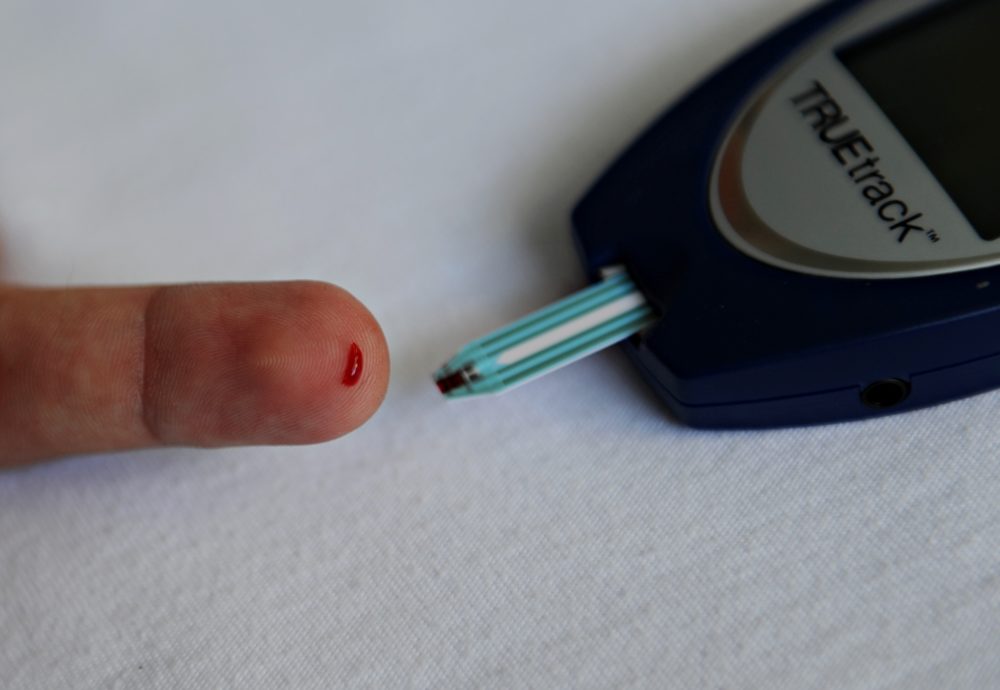Advertisement
Utah Family Sues School After Son With Diabetes Barred From Returning To Class

The family of an 8-year-old boy with type 1 diabetes is suing the school district in Herriman, Utah, because they say he’s not allowed back in class due to a dispute over his treatment.
Type 1 diabetes means the pancreas can’t produce insulin, which is necessary to move glucose from the blood into cells for energy. People who have type 1 diabetes must constantly measure their blood sugar and inject insulin to keep their blood sugars steady.
The treatment of diabetes can be a challenge for kids in school, but Caly Watkins says her son was managing it well on his own. She says that her son wore a watch that monitored his blood sugar level and sent that information to her phone.
Watkins wanted to fill insulin syringes at home that her son could bring to school and inject himself. But the school wanted those syringes each to be filled by a pharmacist and kept in a school office.
“I don't see their concern at all,” Watkins says. “A syringe is keeping him alive, and even if a child got a hold of a diluted insulin syringe that dose would not affect the child.”
The school has placed Watkins’ son on “home and hospital” for all of second grade, she says. A Jordan School District spokesperson said they cannot comment on the pending litigation.
“That's for ill children who cannot go to school or other reasons why they cannot show up to school,” Watkins says. “But he is not too ill. He's perfectly capable of sitting in class and learning.”
Watkins says older children in the district who have diabetes are able to inject their own insulin. The school still denied her son after a doctor said he was capable of doing it.
Aaron Kinikini, an attorney with the Disability Law Center who is representing the Watkins family, says the school’s policy violates the Americans With Disabilities Act and the Rehabilitation Act, which requires public schools to make accommodations for people’s disabilities.
“The other distinction here is that there is a state law — and nearly every state has a similar law on its books — that gives an absolute right to a child with diabetes to carry and possess at all times and in all places any insulin and any equipment necessary,” Kinikini says.
Advertisement
In the past, Watkins says she asked the school nurse to help her son inject the insulin. She asked the nurse to send her photos of the syringes before she injected him, and once, Watkins caught a terrible mistake.
“I texted her to send a one unit picture and she sent a 10 unit syringe drawn up,” Watkins says. “I mean, that's completely life threatening.”
Sarah Fech-Baughman of the American Diabetes Association says diabetes care in schools presents many challenges. Sometimes school nurses make mistakes simply because they are “stretched very thin,” she says.
“There are lots of children with chronic health conditions in schools these days,” Fech-Baughman says, “and so maybe it's talking with the school administrators about getting some additional support for that school nurse.”
Kinikini says he can understand the school’s view, but he argues it’s more harmful to Watkins’ son to miss a year of school.
“The risk of depriving her son one year of his right to a free public education is high if you don't let him in when he has a legal right to be there,” he says. “But they're weighing heavily the kind of speculation that a prefilled syringe with a tiny dose of diluted insulin is somehow so dangerous that they're going to need to bar him from entering the school.”
Watkins says being denied entry to school took an emotional toll on her son.
“He asked everyday, you know, 'Am I going to school?' He had his bag ready, and it just didn't happen,” she says. “I kept telling him, 'We're doing everything we can to get you back.’ ”
Ashley Locke produced and edited this interview for broadcast with Todd Mundt.
This segment aired on July 31, 2019.

